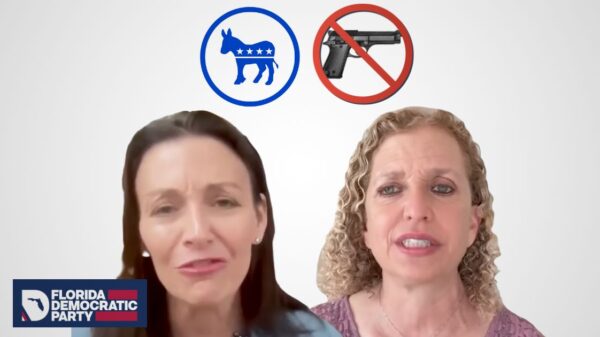This week, state Agriculture Commissioner Nikki Fried sent a letter to her fellow members of the Florida Cabinet strongly encouraging changes to existing administrative policies to help increase diversity, equity and inclusion within the state agencies they oversee.
The letter follows a July 10 letter from Fried to state agencies overseen by the Florida Cabinet asking for their current policies on diversity, inclusion, and discrimination, as well as plans to update their policies.
In May, Fried created a Diversity and Inclusion Work Group within the Florida Department of Agriculture and Consumer Services (FDACS), a twelve-member committee, of diverse backgrounds and perspectives, working to extensively review existing department policies and develop recommendations to improve diversity, inclusion, and equity within the department. In September, Fried announced policy and procedure changes within the department to create a more racially inclusive and equitable state agency. These included changes to the use of force, de-escalation, and excessive force intervention policies by FDACS’ Office of Agricultural Law Enforcement, updated discrimination complaint procedures, and other changes.
The letter reads as follows:
Dear Cabinet Colleagues,
As you know, America is currently reckoning with our nation’s past and present on racism, discrimination, equality, and diversity. Through the expression of free speech ensconced in our Constitution, people across our state and country are asking their leaders to address the pervasive issues that exist in society, including in our government.
Upon taking office as Commissioner of Agriculture nearly two years ago, one of my first initiatives was updating our department’s administrative policies and procedures to include sexual orientation and gender identity. My intention was to make clear that all applicants, employees, people, and entities working with or doing business with our department are entitled to do so free from discrimination.
By adding sexual orientation and gender identity to our list of groups protected from employment discrimination, we have made a living statement of our department’s values. This is consistent with not only America’s values, but with the law; earlier this year, the U.S. Supreme Court ruled to officially expand the list of protected classes to include sexual orientation and gender identity (see Bostock v. Clayton County, GA).
The horrendous and unjustified killing of George Floyd and continued widespread unrest has exposed the need for policy change, as well as the need to ensure our existing policies reflect governance underscored by impartiality and equity. As such, we at the Florida Department of Agriculture and Consumer Services, meticulously combed through our policies with the goal to improve them. To date, we have made the following changes:
The addition of the word “Inclusion” to our core values;
-
-
- An update to our Administrative Policy & Procedure (AP&P) 8-15 Personal Security, User Accounts, Acceptable Use, and Social Media, to define security standards and outline social networking and social media policies;
- An update to AP&P 5-21 Discrimination and Sexual Harassment, to clarify that a “complainant” includes the victim of discriminatory or harassing conduct or a third-party witness to the conduct; and
- An update to our Office of Agricultural Law Enforcement’s Use of Force policy to remove the Lateral Vascular Neck Restraint technique as a method for controlling an actively resisting suspect and added the mandatory use of de-escalation tactics when safe and feasible in order to reduce the need for use of force.
-
As we continue the review of our policies, we welcome opportunities for progression and transformation within our department.
That said, on July 10, I requested that each state agency jointly governed by the Florida Cabinet submit to my Office of Cabinet Affairs their current policies on diversity, inclusion, and discrimination, as well as plans to update their policies to reflect the Bostock decision. I am pleased to report that all agencies have responded positively. Many agencies proactively updated their policies either following our department’s 2019 changes, or upon the Supreme Court’s ruling. I commend all our Cabinet agencies for their efforts and cooperation, and for understanding the importance of this issue.
Given the progress made by the agencies we jointly oversee, I write today to strongly encourage each of you to request the same changes of the agencies you oversee individually. Recruiting and retaining a talented state workforce relies upon creating a culture, environment, and expectation of freedom from discrimination for every applicant, employee, vendor, contractor, and customer of our state agencies.
Our citizens expect, our laws require, and our values demand that everyone will be treated equally when doing business with the State of Florida. As we work to address systemic racism, discrimination, and inequality, let our actions today be part of the continued march towards progress.



















